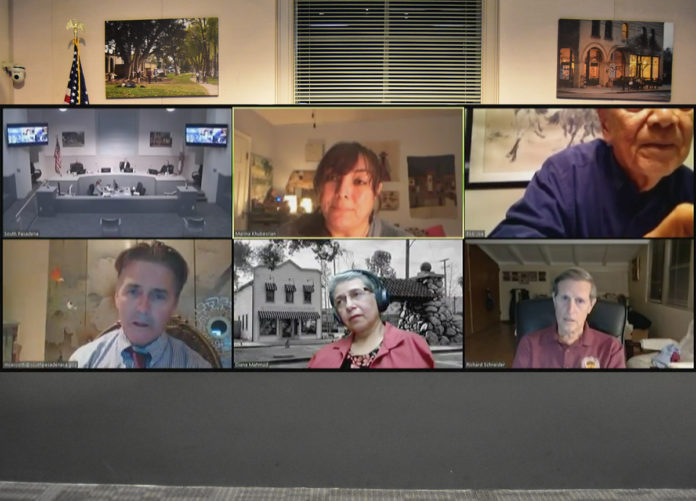
“Tough challenges to a particular point of view, and criticism of ideas and information are legitimate elements of a free democracy,” according the Code of Conduct set for adoption at last Wednesday’s South Pasadena City Council meeting. “This does not allow, however, public officials to make belligerent, personal, impertinent,” or other types of disparaging comments, it states.
Not only was the Code pulled from the agenda and deferred due to complaints it was offered without sufficient consultation from the City’s disgruntled Public Safety Commission, so too went the intent of its admonition on board interactions when Councilmembers Marina Khubesrian and Michael Cacciotti angrily denounced each other as being “out of touch” with South Pasadenans.

At four hours and 46 minutes, the city’s COVID-inspired, first-ever virtual public meeting may also have been one of its longest. It began 20 minutes late, each member settled in before screens and cameras at their respective homes, offering unique glimpses into their personal living spaces—Khubesrian’s frameless art; Cacciotti’s colorful Japanese folding screen; Richard Schneider’s dark, pitched-ceiling office; Diana Mahmud, staring off screen, wearing a headphone in front of a black-and-white backdrop of the city’s historical museum; and Mayor Robert Joe, his eyebrows frequently cut off by the top of the screen as framed horses galloped behind him.
For well over three hours, the session progressed through an interesting but tedious parade of department heads reporting on the extraordinary steps employees have taken to keep the city running even as most work from home in deference to an invisible and deadly virus.
But as midnight neared and having been warned by City Manager Stephanie DeWolfe that expenses and losses due to the pandemic would leave “a major chunk of missing revenue” in the budget, Councilmembers labored over items on the lengthy but normally uncontroversial list of payments which at this meeting totaled $1.8 million.
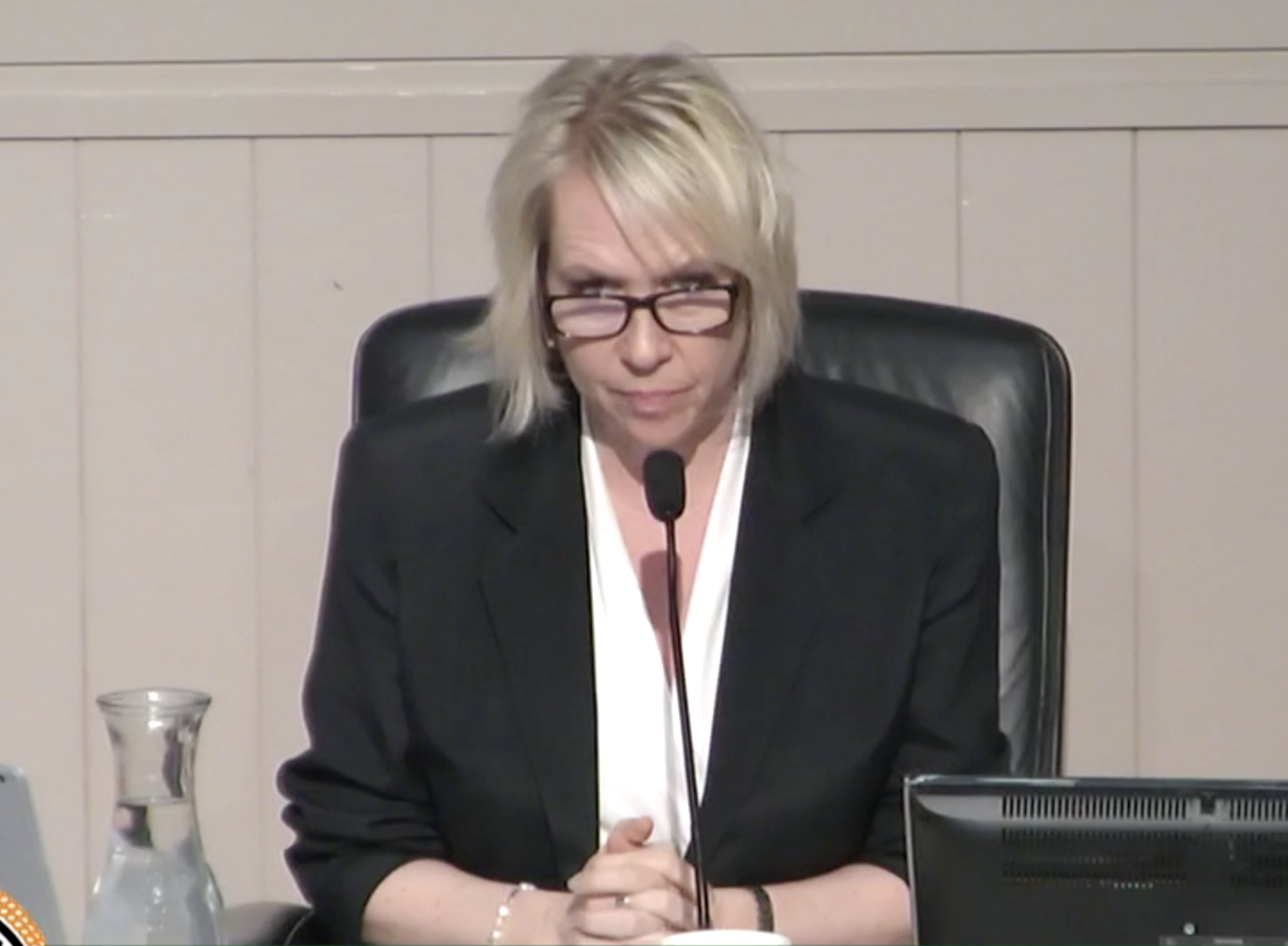
His tone growing increasingly passionate, Cacciotti questioned a number of them—a $68,300.49 legal bill that the city attorney said was due in part to an “inordinate” number of public record requests–some demanding up to 7,000 documents; $7,575 for a Sacramento lobbyist Cacciotti said the city doesn’t need; and $2,155.34 in purchases from a store outside the city that he said should have been done in town to recoup the city’s share of sales tax.
But his exasperation peaked when he came to the $12,187.50 payment for Fallbrook, CA-based RMG Communications, which bills $125/hour for 15 hours a week to serve as an “on call public information officer (PIO).” Cacciotti said the city doesn’t need it or the recently renewed $24,750 PIO contract with Pleasanton, CA-based SAE Communications.

There are so many such contracts—all, he noted, just under the $25,000 threshold for which the City Manager requires Council approval–that they are difficult to track, Cacciotti said derisively, adding they serve needs better met through adroit management of existing resources.
“Many of my residents are very concerned about how much money the city is spending” and want the contracts cancelled immediately, he said. “And I support them 110 percent.”
Fatefully, a six-week, $12,000 extension of the $24,375 RMG contract, like the Code of Conduct item, was pulled from the consent agenda for separate consideration. The city has decided not to fill the vacancy in its staff PIO position, requiring the extension to bridge the gap until next summer when a new PIO consultant can be selected and engaged.
In keeping with the protocol set for the teleconference, the clerk read 150-word versions of the four public comments—all opposed—submitted by Jan Marshall, Alan Ehrlich, Delaine Shane and Joanne Nuckols, the last of whom complained RMG failed to communicate with the public on coronavirus and warned: “People are paying attention and will remember this expenditure if you approve it.”
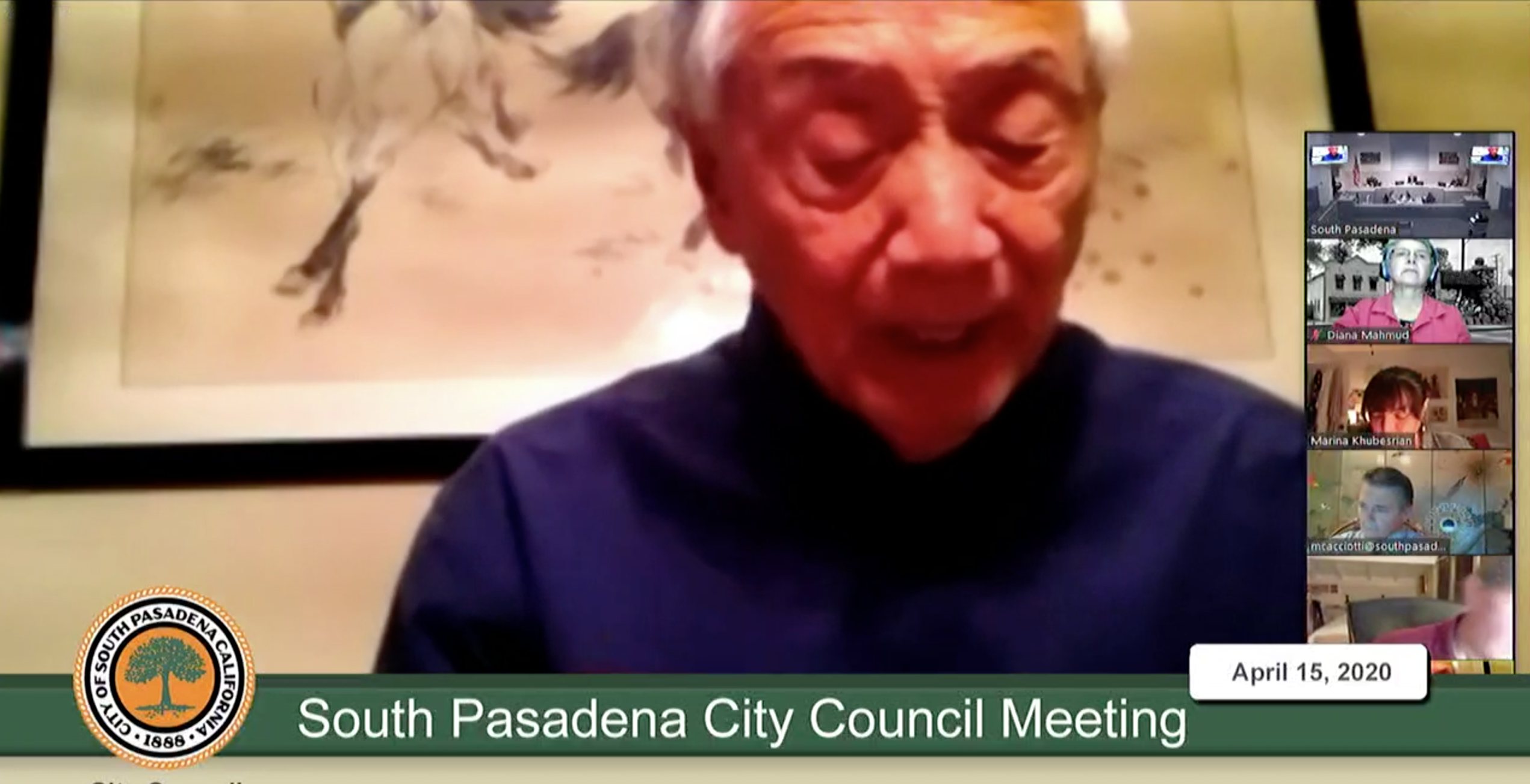
Ehrlich argued the city has generated exactly one message to its citizens on coronavirus awareness, compared to 28 messages sent to parents by the School District which has no PIO.
But during her update on the Management Services Department, Lucy Demirjian, Assistant to the City Manager, reported that since March the city has produced 13 COVID-related news releases and redesigned its website to feature COVID information.
“It’s unfortunate that people who have been counting have not received the notices,” Councilwoman Diana Mahmud said evenly. She defended the need for and cost of the contract extension but lamented the city’s no-win situation: people complain both that the city is not communicating enough and spending too much when it tries to communicate more. “We’re getting whip-sawed.”
Khubesrian said two comments supporting the RMG extension arrived after the deadline. She complained about the complainers, saying her constituents ask, “Why is it the same people? It seems like they are never happy about anything.” She said “it’s hard to put a lot of credibility in that when it seems like the aim is to constantly have this gaze of negativity. A majority of our residents are very satisfied with how the city is running things. Now is not the time to disassemble our communications strategy.”
Councilman Richard Schneider said simply, “I think we are in financial trouble and I am not going to vote for a $12,000 expenditure for a PIO.”
“My thoughts are somewhat similar,” said Mayor Robert Joe, the deciding vote. “We need to look at all of these contracts because we are in a very serious budget situation.”
DeWolfe stressed the “specialized skills” of a professional PIO. She described Ehrlich’s comment that only one press release went out as “laughable”. There were many dozens of postings and press releases and other contacts concerning COVID. She said the city’s communication efforts on coronavirus have been as good or better than other small cities, and warned no one on staff has the skill to maintain it. “I share the confusion that if communication is a priority, why would we then reduce the amount of resources we’re allocating to communication?”

“There is no winning with a certain group of people” who complain all the time about spending, Khubesrian said, even as the same people drive up the city’s public record response costs, which come in “way more” than the proposed $12,000 RMG extension.
“I wish it was only a few residents,” Cacciotti shot back. “But actually there’s many residents complaining about access to city management—”
“No one is complaining about that!” Khubesrian interrupted, quickly apologizing after Cacciotti called it out.

Glaring and shaking his finger at the screen, Cacciotti demanded to see a complete organizational chart of the administrative side of the city and their responsibilities. “I don’t know what’s going on. So many people have quit or left.” In 19 years on the Council he said, there’d never been a need for so many PIO consultants. Why are they needed now?
Khubesrian said she couldn’t understand why Cacciotti felt as he did. She feels “connected” with all the decisions that have been made, including the consultants. “You and I have such a different experience of all this. I know you work a lot. I think you’re a little bit out of touch, Michael. I’m sorry, but that’s my opinion.”
“Marina, actually you’re very out of touch,” Cacciotti answered. “All the residents I talk to give me a totally different opinion.”
“Guess what? They’re not on the Council, Michael. I am.”
Councilmember Mahmud and Mayor Joe then reined in their colleagues.
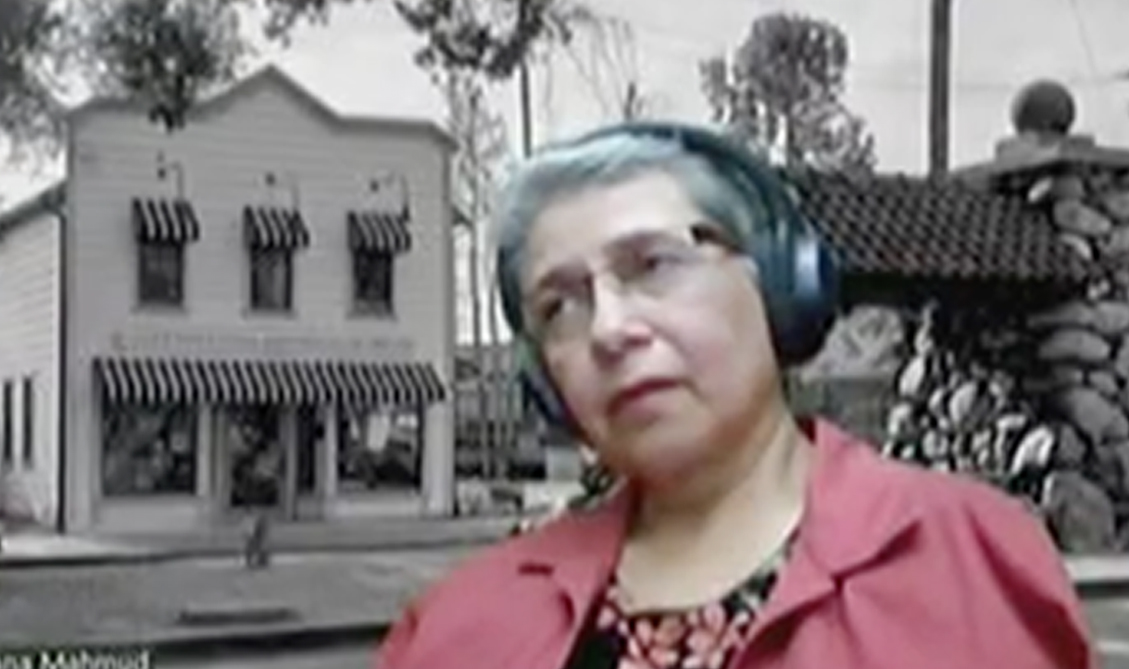
Before the contract extension failed on a rare 3-2 vote, the discussion closed with Mahmud’s warning that its rejection would result in a “decrease in the quality and quantity of the communications” staff produces, as there is no one who can be pulled from another department to do it. Without the contract, “we going to face increasing criticism regarding our communications.”
The media will not get responses as quickly, Khubesrian noted. The website won’t get updated and there be less social media output and public outreach.
This will occur even as the city ramps up in coming weeks to finalize both its new annual budget and the critical housing element of its 20-year General Plan.
The meeting adjourned at 12:35 a.m.



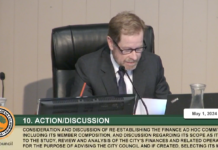








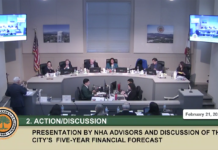



.png)








I SO agree Tracey. Michael is my city council member. He’s fighting the good fight and actually went through the prepaid warrants and saw all the money going out. I went through all of the prepaid warrants for 2019 and some were 60 pages long! It was amazing how much money is being funneled to consultants outside our city with negligible results. At this point in time, with all cities and states facing an economic downturn, we need to be ever vigilant in where OUR money is going. FYI that that last hour of the council meeting was painful to watch.
Request: Please be open, and be a presence in the community, and talk to us.
Response: Yes, we have hired several PR consultants.
They just can’t get it.
First, Teresa Highsmith is simply lying. She blames her firm’s $68,000 bill for a month of legal services on the work her firm has done to process a large number of public records requests, but if you look at the city’s warrant register in the agenda package, you’ll see a generalized breakdown of the charges — for example, $17,607 for “Case 2.” That’s the cost of litigating a particular lawsuit, not for managing public records requests. See also “Labor & Employment” at $12,746, or “Misc. Litigation” at $9,062. Which of those relates to public records requests? This is a shameful scapegoating of citizens who care about their community and participate in local government matters, and it’s a naked piece of dishonesty. Our city attorney owes us an apology.
Second, Khubesrian, Mahmud, and DeWolfe were very carefully obtuse about what people have been saying to them on the topic of city communication. The point is that the council and the city manager have been silent and absent more often than not, and not much of a presence in the community — going a month without a meeting during a crisis, for example. Their response is that they’ve bought lots of PR consulting, so what’s the problem? I’m embarrassed for them. The point is that if they were at all capable of just talking to people, they wouldn’t need to pay people to generate PR product for them. They’re trying to buy an approach to the public that they don’t have themselves. Here’s the whole solution: Try talking to people.
Finally, I don’t think you’ve fully captured the extraordinary silliness of DeWolfe’s argument about the need for the city to have *multiple* and expensive PR consultants on contract during a budget crisis. You can hear these comments for yourself on the video of the council meeting, at the 4:30:35 mark:
“But just to clarify, what a public information officer does, it’s not just updating the webpage…This person writes professional press releases for us. Writing a press release is not a skill that anybody off the street has. It’s a very specialized skill to be able to write press releases. They need to be written on very short notice with very high quality. And this person needs to have a relationship with the press and be able to distribute the information very quickly…These are the factors that go into a professional communications strategy. You need to have a professional with that skillset in order to produce those professional communications.”
As for our PR consultants and their deep connections with the local press, RMG Communications is based in Fallbrook, 90 miles away, and SAE Communications has offices in Northern California and Santa Barbara. The relationship of that PR consultant in Fallbrook with reporters in South Pasadena must be an old and deep one, nurtured over the years.
But anyway, never forget that writing press releases is impossibly complex. It’s the quantum physics of small town governance. Not just anyone off the street can do it! You have to, like, write down words and stuff. “The City of South Pasadena has appointed Karen Aceves as the city’s new finance director.” Imagine being to communicate something that impossibly complex! You need years of specialized training.
Then, finally, note what Diana Mahmud said at 4:39:40:
“If we don’t approve this” — a contract extension for one of the PR consultants — “I think we should expect to see a decrease in the quality and quantity of the communications that staff is producing.”
There it is, flatly: Mahmud knows that we have a city manager who IS NOT CAPABLE of talking to the community without an army of expensive PR consultants. In a city that never had a PR staff before DeWolfe came on board, we suddenly have a city government that can’t talk to the community without paying for an army of PR people.
These people are a parody of themselves — it’s like Christopher Guest made a movie about a make-believe city council. Kudos to Councilmembers Cacciotti and Schneider, and to Mayor Joe, for putting a stop to this nonsense.
Thank you Chris. I SO agree with your comments. Our city manager has outsourced most of the work and mostly through contracts just under the $25k, the limit that would require the approval of the city council. As someone who has worked as a journalist and and Public Information Officer, I’m appalled at how much our city has spent for sub-standard work.
“Marina, actually you’re very out of touch,” Cacciotti answered. “All the residents I talk to give me a totally different opinion.”
“Guess what? They’re not on the Council, Michael. I am.”
Pretty much sums up the current state of affairs. Read into this what you will….